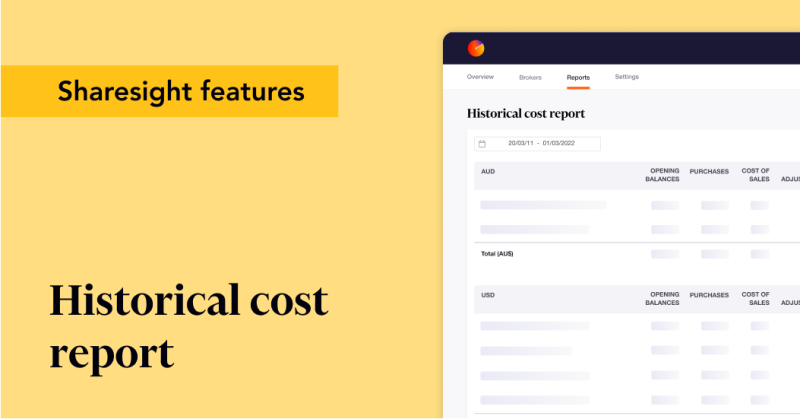Do demergers & spin-offs create value for shareholders?
Large conglomerate style businesses need to strike the right balance between two competing theories -- diversification and core-competency. On the one hand, diversification across multiple businesses offers economies of scale from shared operations, on the other, it’s difficult for a conglomerate to "focus" on everything. In order to strike the right balance between these competing forces, a conglomerate can choose to 'de-merge' or 'spin-off' one or more operating units into its own company, creating a separate entity, with both demerged companies positioned to better focus on their respective core competencies.
But do demergers and spin-offs always create value for shareholders? As with everything in life, it depends and needs to be looked at closely.

What is a demerger?
A demerger or a spin-off is a corporate action in which a business unit or a part of a large organisation or a conglomerate, is carved out and listed as a separate company on the stock exchange.
In a demerger, the parent company transfers a proportional number of shares in the spun-off entity to its shareholders. Usually, the parent company continues to hold a substantial shareholding position in the spun-off company.
What does a demerger mean for shareholders?
When a spin-off happens, shareholders in the original entity automatically acquire shares in the newly created business. The original entity will also adjust the ‘cost base’ of their shares, and also set the cost base for the shares issued in the demerged entity.
Many analysts have looked at the performance of demerger announcements and their impact on shareholders’ equity. The general belief among many analysts and observers is that a spin-off is usually beneficial to shareholders (see chart below) of the parent as well as the spun-off companies.
Demerger example: Fairfax (ASX:FXJ) - Domain (ASX:DHG)
While ultimately the market decides the value of shares for each demerged or spin-off company, for tax reasons, a company demerger or spin-off will follow a structure similar to below.
Let’s work through a real example of the Domain group’s demerger from Fairfax media group.
The salient features of the demerger from the Fairfax shareholders website were:
-
Fairfax media(FXJ) would hold 60% share in the new Domain group(DHG)
-
For every 10 shares an investor in Fairfax holds, s/he would get 1 share of Domain group(DHG)
-
The tax cost base of FXJ shares should be reduced by $0.233 per share
-
The tax cost base per DHG share can be calculated by taking your Capital Reduction Entitlement ($0.233 times the number of FXJ Shares held on Scheme Record Date)and dividing it by the number of DHG shares received. Subject to rounding, the DHG shares should have a tax cost base of approximately $2.33 per share
-
The Scheme Record Date is 7:00 pm on 17 November 2017
If an investor owned 10,000 shares in FXJ on 17 November 2017, s/he would be issued 1,000 shares in DHG. Let’s assume that s/he had bought these 10,000 shares on 1 November 2016 at a price of $0.825, therefore a investment cost base of $8,250.
On 22 November 2017, s/he would own both 10,000 shares in Fairfax media (FXJ) and 1,000 shares in Domain (DHG). The cost base of the 1,000 DHG shares would be $2.33 x 1000 = $2,330.
The cost base of the FXJ shares would be adjusted by $0.233 x 10,000 = $2,320 from the original cost base of $8,250 through a return of capital corporate action. This means that the new adjusted cost base of the FXJ shares would be 8,250 - 2,330 = $5,920.
The below table shows the performance of the Fairfax and Domain holdings a year after the demerger or spin-off.

Advantages of a demerger
Are there pros to a divorce or a break up, you might ask? In the case of a corporate spin-off, there certainly are some advantages.
-
Focus on core competency of the spun-off entity.
-
Management accountability of the spun-off division ensures each division can take care of its own financial positions without any cross-subsidies.
Shareholders of the demerged entities enjoy the benefits of more focussed businesses with management accountability driving the intrinsic value of each company, pushing their respective share prices higher than had they remained a combined entity.
Downsides of a demeger
There are still significant risks in a demerger or a spin-off, some of which include:
-
The parent might spin-off completely unwanted assets and debt
-
Potential loss of synergies between the parent and the spin-off (which are not documented)
How have demergers performed?
Like with everything in investing, nothing is foolproof. Spin-offs are preferred over IPOs by investors. Their assets are better known compared with initial public offerings (IPOs) and have been subject to disclosure rules for years. There is also better alignment of incentives because the parent company wants its offspring to succeed, given its shareholders have received stock in the new entity. IPOs on the other hand are driven by incentives of the investment banks and private equity holders - which is to maximise listing value on day one.
Have some spin-offs underperformed after being spun off? Some definitely have. Have a look at the table below to see some of spin-offs from recent times and their performance.
| Market | Code | Name | Parent | 1 year | 3 years | 5 years |
|---|---|---|---|---|---|---|
| ASX | DLX | Duluxgroup Limited | Orica | 16.3% | 27.5% | 23.4% |
| ASX | TWE | Treasury Wine Estate | Foster's Group | 35.9% | 7.7% | 25.5% |
| ASX | TME | Trade Me Group | Fairfax Media | 52.0% | 10.6% | 19.5% |
| ASX | S32 | South32 Limited | BHP Billiton | -20.4% | 28.1% | - |
| ASX | CYB | Cybg Plc | NAB | 14.1% | - | - |
| ASX | DHG | Domain Holdings | Fairfax Media | -34.4% | - | - |
| TSE | CHR | Chorus Aviation Inc | Air Canada | 7.4% | - | |
| TSE | TVA.B | TVA Group Inc | Quebecor | -24.0% | -8.9% | -7.1% |
| TSE | CU | Canadian Utilities | ATCO | -7.9% | 6.1% | 16.3% |
*All performances include dividends and have been calculated using Sharesight based on prices of the spun-off company on the day of listing
How Sharesight helps you keep track of demerged shares
The magic of Sharesight really comes to life when you own shares in a business that undergoes a corporate spin-off or demerger. We regularly inform our clients about the mechanics of popular demergers and corporate spin-offs via our blog and help site. Specifically, here’s how Sharesight helps with demergers:
-
Working out the historical base: When you receive shares in the new entity after a corporate demerger, most online brokers will not show you the cost base of the new shares. They will show a cost base of $0 and therefore all performance reporting will be wrong.
-
Capital gains tax reporting: As a corollary of the fact that online brokers don’t know your historical cost base, they can’t quite work out what your capital gains are as a result of the demerger.
Sharesight also provides detailed step-by-step guides on how to track your cost base and manage these demergers with your portfolio. Recent examples are listed below:
Get a true picture of all demergers and spin-offs
As demergers and spin-offs are back in vogue, it’s more important than ever for investors to be organised and ready to take action and understand the true performance of their portfolios.
Get the complete picture of your investments by signing up for a free Sharesight account today, and put yourself in the best position to deal with any demergers and spin-offs that may occur in the future.
FURTHER READING

Sharesight nominated for 2025 Wealth Tech Innovator of the Year
Sharesight has been chosen as a finalist in the 2025 Australian Wealth Management Awards, in the Wealth Tech Innovator of the Year category.

Prepare your annual accounts with our historical cost report
Sharesight's historical cost report is a powerful tool for investors who need to prepare annual accounts or financial statements with mark-to-market accounting.

Sharesight product updates – July 2025
This month's focus was on rolling out predictive income forecasting, as well as improved cash account syncing across different brokers and currencies.